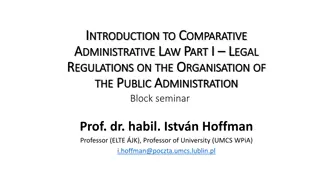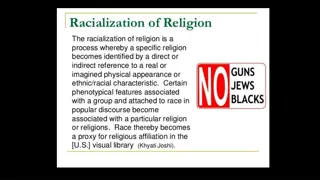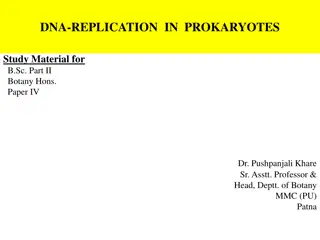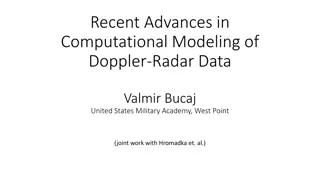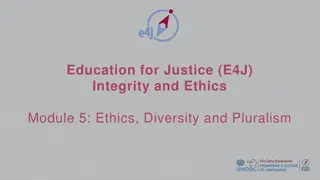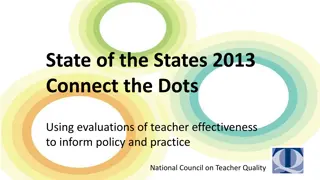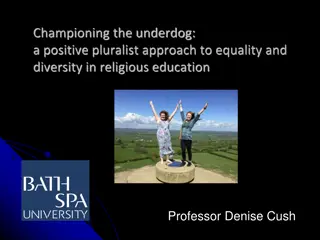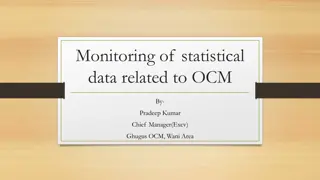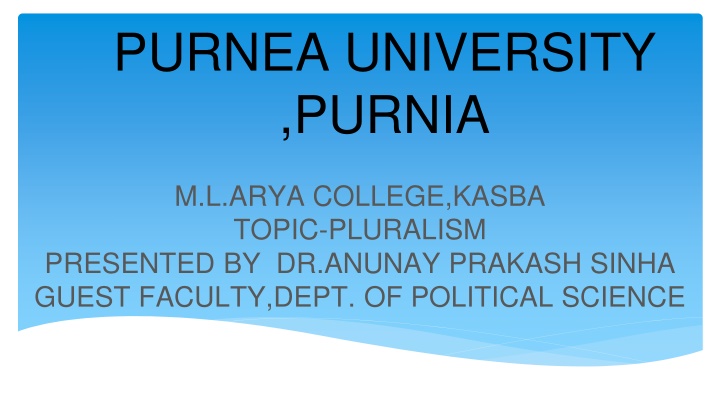
Pluralism as a Political Philosophy
Explore the concept of pluralism as a political philosophy, advocating for diversity and peaceful coexistence of varying interests and lifestyles within a political body. Discover how political pluralists aim to promote accommodation of differences, engaging in good faith dialogue and recognizing the importance of institutional structures in facilitating negotiations.
Download Presentation

Please find below an Image/Link to download the presentation.
The content on the website is provided AS IS for your information and personal use only. It may not be sold, licensed, or shared on other websites without obtaining consent from the author. If you encounter any issues during the download, it is possible that the publisher has removed the file from their server.
You are allowed to download the files provided on this website for personal or commercial use, subject to the condition that they are used lawfully. All files are the property of their respective owners.
The content on the website is provided AS IS for your information and personal use only. It may not be sold, licensed, or shared on other websites without obtaining consent from the author.
E N D
Presentation Transcript
PURNEA UNIVERSITY ,PURNIA M.L.ARYA COLLEGE,KASBA TOPIC-PLURALISM PRESENTED BY DR.ANUNAY PRAKASH SINHA GUEST FACULTY,DEPT. OF POLITICAL SCIENCE
Pluralism as a political philosophy is the recognition and affirmation of diversity within a political body, which permits the peaceful coexistence of different interests, convictions, and lifestyles.
While not all political pluralists advocate for a pluralist democracy, this is most common as democracy is often viewed as the most fair and effective way to moderate between the discrete values.
Pluralism thus tries to encourage members of society to accommodate their differences by avoiding extremism (adhering solely to one value, or at the very least refusing to recognize others as legitimate) and engaging in good faith dialogue.
Pluralism recognizes that certain conditions may make good faith negotiation impossible, and therefore also focuses on what institutional structures can best modify or prevent such a situation.




